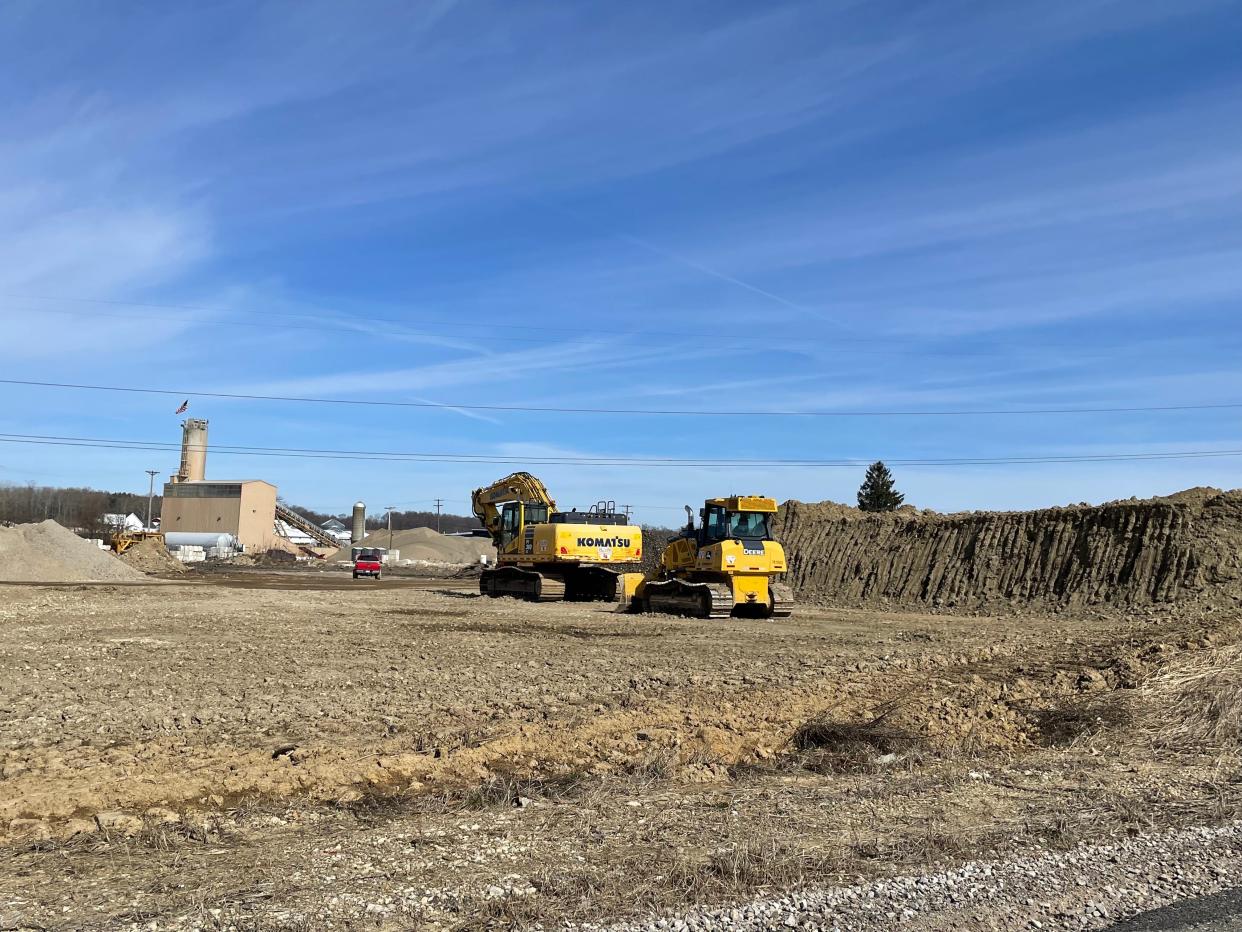Letters: Two proposed asphalt plants near Alexandria raise water and air pollution concerns

Alexandria and Granville communities are concerned about the risk to their health and water resources from two proposed hot-mix asphalt plants in St. Albans Township adjacent to Raccoon Creek at each end of Alexandria. Anyone examining the estimates of the impact on water, air, and truck traffic would easily conclude that these plants should be located on sites zoned for heavy industry.
Public meeting Thursday EPA hosting June meeting on asphalt plants proposed near Raccoon Creek
The Raccoon Valley aquifer and Raccoon Creek would be threatened by the stormwater runoff and any spill at the proposed plants. Both plants would be situated on a porous gravel kame, where leaking heating oil and truck fuel would go immediately into the ground and the aquifer below. One site plan shows runoff going to sediment basins and then directly into the water pool of the former quarry, a direct connection to the aquifer. The other site’s runoff is currently going into Raccoon Creek, which recharges the aquifer. But severe flooding would flush all surface contaminants into Raccoon Creek and to the aquifer and communities downstream.
Conflict of interest raised St. Albans Township zoning official resigns after clash over asphalt plants
One new plant with a production rate of 325 tons per hour has applied for a permit. The other, a mobile plant with a production rate of 300 tons per hour, has yet to apply. The proposed plants would operate for about 300 days per year due to weather, and at times the plants would operate 24 hours a day, 7 days a week. The hot-mix plants would use oil-fired drum mixers burning 800 gallons per hour. Dust will be generated by open piles of aggregate, crushing and storage of recycled asphalt pavement, materials handling with open belt conveyors and end-loaders, and truck traffic. How effective will water spray be in suppressing the dust?
When the plants are operating on a 24/7 schedule, 3,000 trucks/day would be required to load-out the hot-mix asphalt, resupply the materials, and return empty trucks. This estimate is based on big 20-ton dump trucks requiring at least 5 axles. Smaller trucks would require more trucks. This is heavy manufacturing with health and safety impacts on nearby residents.
A prior Letter to the Editor: Letters: League of Women Voters shares concerns, urges scrutiny of proposed asphalt plants
The air emission allowances requested on the permit request do not support the claim that the plant is using the best available technology. Compared to typical plants studied by the U.S. Environmental Protection Agency 20 years ago, the requested allowances for Volatile Organic Compounds (VOC) would be four times a typical plant, carbon monoxide (CO) iwould be twice that of a typical plant, and sulfur dioxide (SO2) is 10 times a typical plant. Plant size did not require other hazardous air pollutants to be reported, but a typical plant would emit tons of respirable particulate matter (PM10) and hazardous air pollutants (HAPs).
Research on Health Effects of Air Pollutant published by the U.S. Environmental Protection Agency, lists a wide range of common health conditions, including coughing and wheezing to asthma attack, bronchitis to high blood pressure, eye, nose and throat irritation, headaches, fatigue, nausea, and many more severe respiratory and cardiopulmonary diseases. The health effects associated with HAPs include cancer, asthma and other respiratory ailments, birth defects, reproductive effects, and neurodevelopmental defects. The aggregate may be inert, but the smoke from the asphalt and the products of combustion are not.
Another view: You Know I'm Right: Don't judge potential asphalt plants too quickly
The two proposed asphalt plants near residential areas of Alexandria present a serious risk to the Alexandria-Granville communities. The plants threaten the Raccoon Valley aquifer which serves thousands of residents. The plants threaten the air quality with chemicals with known harmful health effects, The well-being of Alexandria residents will be jeopardized by thousands of trucks passing through their small village.
We can do this right. We need to find a better place in an industrial area.
Ken Apacki is a resident of Granville.
This article originally appeared on Newark Advocate: Letters: Proposed asphalt plants raise water and air pollution concerns

